- April 10, 2025
-
-
Loading

Loading
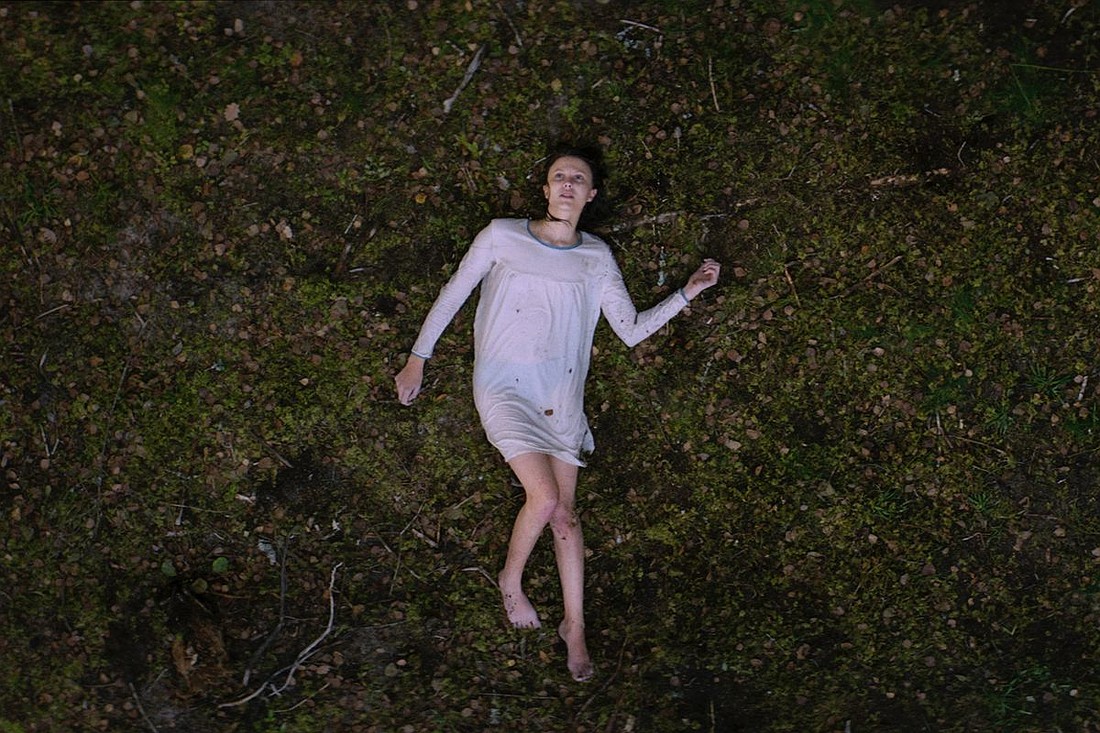
FXNow, rated PG-13, 100 minutes
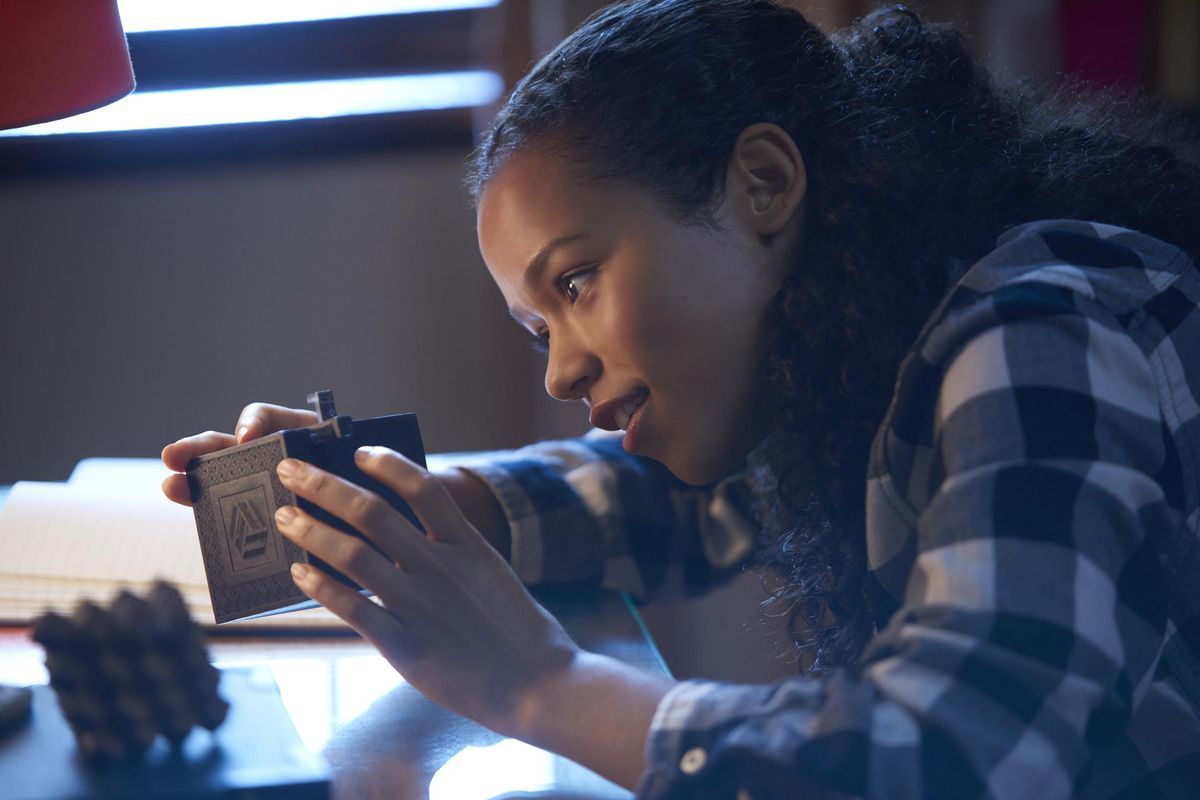
What I like about surprise cult hit "Escape Room" and its 2021 sequel, subtitled "Tournament of Champions," is their acute understanding of the folly of man.
In plainer terms, humans are dumb as hell! Horror movies often get barbs from a certain sector of their fan base that gets mad whenever a character makes what is clearly a bad decision, as if everyone should be thinking 100% clearly when there is a killer chasing them or there is a dark hallway that is just begging to be explored, etc. Buddy, they're scared out of their minds! Simply getting the courage to face whatever evil is in front of them should be considered a win. Plus, isn't muttering "Oh no, don't go in there" to yourself part of the fun?
Anyway, the "Escape Room" movies lean heavily into the People Being Dumb genre. It is part of what makes the budding franchise — trying to position itself as the next generation's "Saw" or "Final Destination" — a surprisingly fun watch. Based on title and genre alone, you probably already know the basic plot of the series: A group of strangers is drawn into a shady series of escape rooms via anonymous invitation. The hook is different for everyone: Some want another heady challenge to conquer; others are looking for a metaphorical escape from past trauma. Eventually, the group — led by Taylor Russell and Logan Miller, because I'm not using character names for these movies — is brought together only to realize that they were brought together for a reason and that the escape rooms they're playing … are deadly!
You know how this goes: Russell and Miller try to escape with their lives while also exposing the shady company behind the enterprise, which proves more difficult than they could ever dream. But they go on this adventure with a bunch of absolute dumb dumbs. That's where the fun lies. These idiots get absolutely wrecked by these escape rooms, most of which are coolly constructed (they're more experiences than rooms) but are made way harder than they have to be by these chumps. One guy straight-up falls through some clearly weak and cracking ice and drowns. Another guy repeatedly grabs a metal subway pole as lightning flies around his train car. Can you guess what happens to him?
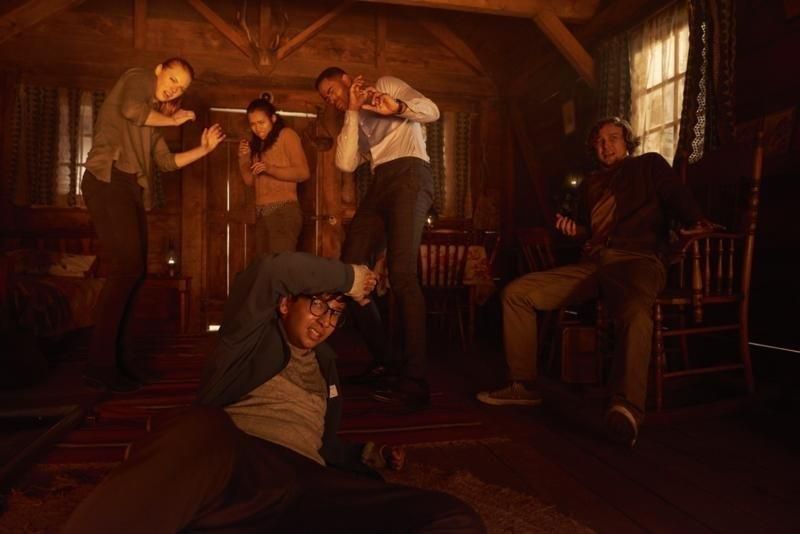
Even our heroes make some questionable choices, but theirs are more spoiler-y in nature, so I'll let you find those on your own. I have no problems with this — more on what I do have problems with in a second — because they're scared teens. It would be weird if they handled these situations with the aplomb of action heroes. It makes them more relatable, frankly.
The room designs in this series are better than they have any right to be. As I said, they're more experiences than anything. One is a seaside scene complete with a shack and a lighthouse — set on a beach made of quicksand. Another, my personal favorite, is a dive bar flipped upside down, with the "ceiling" tiles falling out one by one into a dark abyss. In each of these situations, the group has to find a series of clues leading them to the exit. Or rather, to the next room. The name of this game isn't "escape" as much as it is "survive."
It is a joy to watch these bozos try to figure out the proper solutions. What is less fun is the films' writers and directors unfortunately leaning into the Dumb Guys trope themselves. There's a twist toward the end of the sequel that makes zero canonical sense, retroactively ruining a slew of moments in the first film, and another twist in the very final scene that is easier to spot than a pelican in a flock of seagulls as soon as it hits the screen.
But that's OK. I have to hold horror writers and directors to the same standard as the characters. It's OK that they mess up the story sometimes. It's not easy to create puzzle box movies that feel fresh in 2021, especially ones that don't require tons of blood and gore. (These movies are PG-13, remember.) Are they masterpieces? Not even close. Are they great for watching at midnight while enjoying your vice of choice? Absolutely. In fact, that's really the only way they should be consumed. But it's October now; if you're not getting tipsy and watching horror movies, are you even alive?
Hulu, rated R, 117 minutes
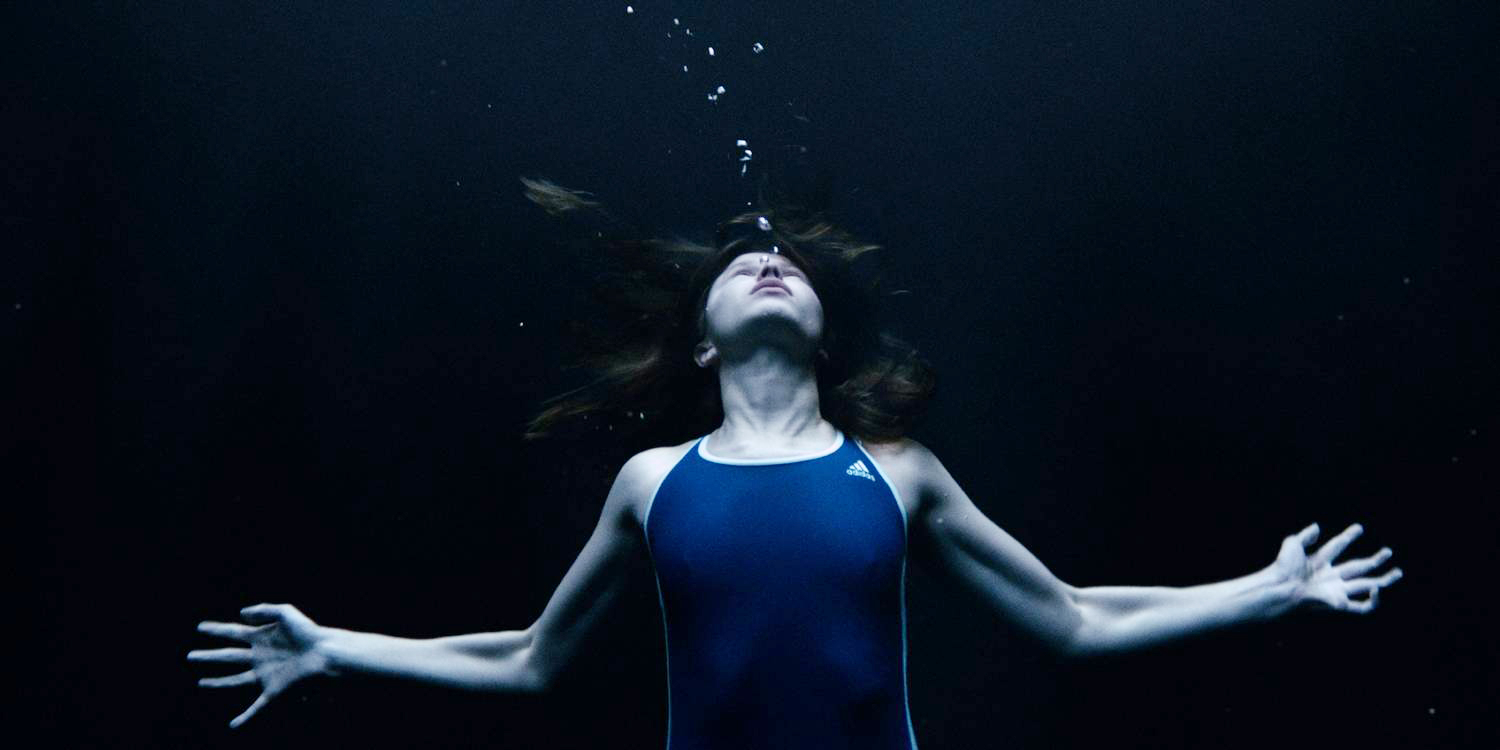
It's not really Cringe Blog season until I write about at least one foreign language film, right?
"Thelma" completely blew me away when I saw it for the first time earlier this year. I went into it not know much beyond the logline and its director, and I want you to have much the same experience, so I will keep this vague. "Thelma" is directed by Norwegian filmmaker Joachim Trier, who previously directed "Louder Than Bombs" and "Oslo, Aug. 31" (and whose upcoming film, "The Worst Person in the World," is getting rave reviews on the festival circuit). It is about a girl named Thelma (Eili Harboe) who moves from a small Norwegian town to Oslo for college. She struggles to make friends, but a girl named Anja (Kaya Wilkins) notices her social anxiety and is kind to her, inviting her to a few gatherings. Thelma falls in with Anja's group, which includes fellow students Kristoffer (Steinar Klouman Hallert) and Daniel (Oskar Pask). The group parties but also has deeper conversations about life and science and religion, among other things.
Unfortunately for Thelma, while she's making this transition to college life, she begins to have violent seizures. As the seizures happen more frequently, Thelma begins to realize that there is more happening to her. Birds fly into windows of rooms she inhabits. Streetlights flicker when she looks at them. Snakes slither across her bedroom floor. Objects — big ones — sway to and fro if she's around. There's a link between all of these things, but it will take Thelma awhile to find it. The more she throws herself at life, the worse her symptoms get. So she goes to the doctor.
That's where things take a turn.
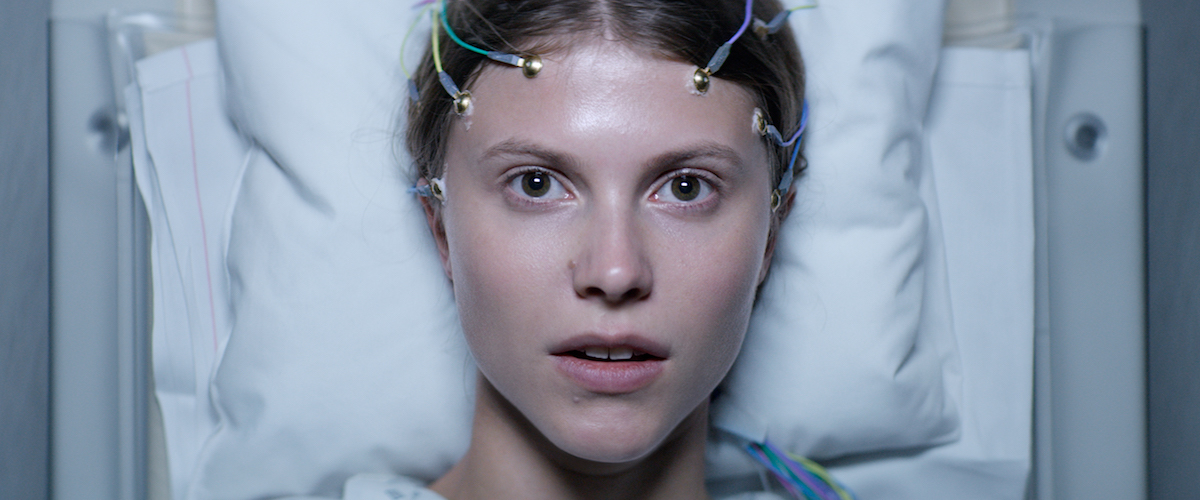
I don't know if "Thelma" is technically a horror story — it's probably more of a psychological thriller — but either way it's a powerful one. There are at least three scenes in this movie that made me wish I could have seen it in theaters. That ship has sailed, but even on a television, this thing is gorgeous. Trier does a phenomenal job of capturing the fear that Thelma is feeling inside and using it to inform the film's look.
The film's ending is a bit ambiguous in its implications, but I like to think of it as a happy one (relatively). That's rare for the genre and one of the reasons I like it so much. But some people see the ending as more sinister than I do. I'm curious to know what readers think of it, but I also don't know if it matters. Even the sinister reading of the ending is compelling. And more than anything else, that is what "Thelma" is about: being compelled. Every shattered pane of glass draws you in, every twitch of Thelma's body makes you pay attention, every apparition glues your eyes to the screen. It is hard to describe the grip of films like this one, and in that way we are all Thelma. We say that we want control back, to be free to change the channel to something else if we'd like, but we never will. Once Thelma gets a taste of her new life, her new possibilities, she's never letting go, either — of anything, or anyone.